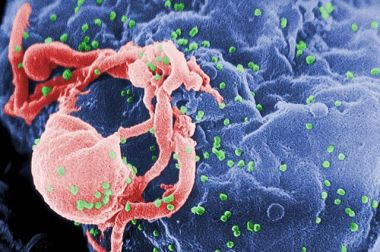HIV/AIDS cure news: Stem cell transplantation being considered a possible albeit complicated approach

The search for the elusive HIV/AIDS cure continues and leading scientists admit that the task is "exceptionally difficult." However, there appears to be a glimmer of hope.
Researchers are looking to replicate the success of the recuperation of Timothy Ray Brown, a man who won his battle against AIDS back in 2008. He was the only known patient who was cured of the disease.
According to CNN, Brown was deemed cured after receiving two bone-marrow transplants that were originally intended to treat his acute myeloid leukemia.
The key to his healing is the bone marrow, which belonged to a donor whose genes came with a rare mutation that rendered them resistant to HIV.
There were attempts to reproduce the same results, but they do not seem to work as well as they did on Brown. However, new research that makes use of stem cell transplants similar to Brown's seems to have generated promising results.
Known as the EPISTEM project, the HIV positive patients involved in it received the said stem cell transplants. Because of this, their HIV reservoirs plummeted low levels.
"In two of the three patients we were unable to detect infectious virus in the blood of the patients," University Medical Center Utrecht virologist Annemarie Wensing, who led the study said.
"All HIV-infected patients that received a stem cell transplantation had a significant reduction of the viral reservoir in their body. This has not been demonstrated with other cure strategies," she added.
The patients in the study were on antiretroviral treatment when they received the stem cell transplantation. What's left of the virus in these patient's bodies was too little to reproduce.
"[This] will help us shape future HIV eradication strategies that could be applied at a larger scale than stem cell transplantation," Wensing said.
The patients in question survived more than a year, as per Peter Doherty Institute for Infection and Immunity director Sharon Lewin.
Now, the researchers plan to explore how the stem cell transplantations will work without treatment. However, the process of the transplant is deemed too complicated to be feasible.
"It's impractical to think we're going to do that for millions of people," National Institute of Allergy and Infectious Disease director Anthony Fauci said.
He believes that digging into gene editing, which involves editing out the CCR5 gene out of the cells of HIV-infected patients, will be more practical.
During the HIV Cure Symposium, Lewin admitted that finding the HIV/AIDS cure will be "difficult" and "long-term." For now, the focus is to stop antiretroviral (ARV) therapy, which has already proven possible.











